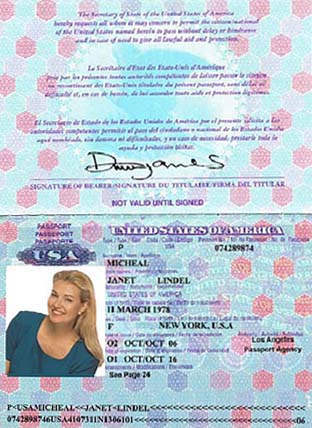
An advance-fee scam is a form of fraud and is one of the most common types of confidence tricks. The scam typically involves promising the victim a significant share of a large sum of money, in return for a small up-front payment, which the fraudster claims will be used to obtain the large sum. If a victim makes the payment, the fraudster either invents a series of further fees for the victim to pay or simply disappears.

A pyramid scheme is a business model which, rather than earning money by sale of legitimate products to an end consumer, mainly earns money by recruiting new members with the promise of payments. As the number of members multiplies, recruiting quickly becomes increasingly difficult until it is impossible, and therefore most of the newer recruits do not make a profit. As such, pyramid schemes are unsustainable. The unsustainable nature of pyramid schemes has led to most countries outlawing them as a form of fraud.
Scam baiting is a form of internet vigilantism primarily used towards advance-fee fraud, IRS impersonation scams, technical support scams, pension scams, and consumer financial fraud.

Internet fraud is a type of cybercrime fraud or deception which makes use of the Internet and could involve hiding of information or providing incorrect information for the purpose of tricking victims out of money, property, and inheritance. Internet fraud is not considered a single, distinctive crime but covers a range of illegal and illicit actions that are committed in cyberspace. It is differentiated from theft since, in this case, the victim voluntarily and knowingly provides the information, money or property to the perpetrator. It is also distinguished by the way it involves temporally and spatially separated offenders.

An online auction is an auction held over the internet and accessed by internet connected devices. Similar to in-person auctions, online auctions come in a variety of types, with different bidding and selling rules.

The United States Postal Inspection Service (USPIS), or the Postal Inspectors, is the federal law enforcement arm of the United States Postal Service. It supports and protects the U.S. Postal Service, its employees, infrastructure, and customers by enforcing the laws that defend the United States' mail system from illegal or dangerous use. Its jurisdiction covers any crimes that may adversely affect or fraudulently use the U.S. Mail, the postal system, or postal employees. With roots going back to the late 18th century, the USPIS is the oldest continuously operating federal law enforcement agency.

A romance scam is a confidence trick involving feigning romantic intentions towards a victim, gaining the victim's affection, and then using that goodwill to get the victim to send money to the scammer under false pretenses or to commit fraud against the victim. Fraudulent acts may involve access to the victim's money, bank accounts, credit cards, passports, Cash App, e-mail accounts, or national identification numbers; or forcing the victims to commit financial fraud on their behalf.
Employment fraud is the attempt to defraud people seeking employment by giving them false hope of better employment, offering better working hours, more respectable tasks, future opportunities, or higher wages. They often advertise at the same locations as genuine employers and may ask for money in exchange for the opportunity to apply for a job.
Telemarketing fraud is fraudulent selling conducted over the telephone. The term is also used for telephone fraud not involving selling.

The Green Dot Corporation is an American financial technology and bank holding company headquartered in Austin, Texas. It is the world's largest prepaid debit card company by market capitalization. Green Dot is also a payment platform company and is the technology platform used by Apple Cash, Uber, and Intuit. The company was founded in 1999 by Steve Streit as a prepaid debit card for teenagers to shop online. In 2001, the company pivoted to serving the "unbanked" and "underbanked" communities. In 2010, Green Dot Corporation went public with a valuation of $2 billion. Since its inception, Green Dot has acquired a number of companies in the mobile, financial, and tax industries including Loopt, AccountNow, AchieveCard, UniRush Financial Services, and Santa Barbara Tax Products Group.
LegitScript is a Portland, Oregon-based internet and payments compliance company that provides services for merchant monitoring, platform monitoring, and certification in high-risk industries. The company also performs investigative analyses for government agencies around the world regarding cybercrime, and offers brand monitoring for intellectual property infringement. Some of LegitScript's partners include Google, Facebook, Amazon, Bing, and Visa. LegitScript also works with the U.S. Food and Drug Administration to monitor and investigate websites marketing FDA-regulated products.
Cambridge Who's Who, also known as Worldwide Who's Who, is a vanity publisher based in Uniondale, New York. It describes itself as highlighting people's professional careers by publishing encapsulated biographies. For additional payment, the publisher also provides other promotional services such as press releases, videos, and Executive of the Year awards. The company is located in Uniondale, New York. As of 2010, Donald Trump Jr. was spokesman and "executive director of global branding" of the company. As of November 2016 the business was "not accredited" by the Better Business Bureau of Metropolitan New York, Long Island, and the Mid-Hudson Region.
A vanity award is an award in which the recipient purchases the award and/or marketing services to give the false appearance of a legitimate honor. Pitches for Who's Who-type publications, biographies or nominations for awards or special memberships can have a catch to them in which the honoree is required to pay for recognition.
The dark web is the World Wide Web content that exists on darknets: overlay networks that use the Internet but require specific software, configurations, or authorization to access. Through the dark web, private computer networks can communicate and conduct business anonymously without divulging identifying information, such as a user's location. The dark web forms a small part of the deep web, the part of the web not indexed by web search engines, although sometimes the term deep web is mistakenly used to refer specifically to the dark web.

A technical support scam, or tech support scam, is a type of scam in which a scammer claims to offer a legitimate technical support service. Victims contact scammers in a variety of ways, often through fake pop-ups resembling error messages or via fake "help lines" advertised on websites owned by the scammers. Technical support scammers use social engineering and a variety of confidence tricks to persuade their victim of the presence of problems on their computer or mobile device, such as a malware infection, when there are no issues with the victim's device. The scammer will then persuade the victim to pay to fix the fictitious "problems" that they claim to have found. Payment is made to the scammer via gift cards, which are hard to trace and have few consumer protections in place. Technical support scams have occurred as early as 2008. A 2017 study of technical support scams found that of the IPs that could be geolocated, 85% could be traced to locations in India, 7% to locations in the United States and 3% to locations in Costa Rica. Research into tech support scams suggests that millennials and those in generation Z have the highest exposure to such scams; however, senior citizens are more likely to fall for these scams and lose money to them. Technical support scams were named by Norton as the top phishing threat to consumers in October 2021; Microsoft found that 60% of consumers who took part in a survey had been exposed to a technical support scam within the previous twelve months. Responses to technical support scams include lawsuits brought against companies responsible for running fraudulent call centres and scam baiting.
AnyDesk is a remote desktop application distributed by AnyDesk Software GmbH. The proprietary software program provides platform-independent remote access to personal computers and other devices running the host application. It offers remote control, file transfer, and VPN functionality. AnyDesk is often used in technical support scams and other remote access scams.
KwikChex is an online investigation and reputation management firm founded by Chris Emmins. It was founded in Bournemouth, United Kingdom in 2010, and moved to Taunton in 2018. It is particularly known for its work in consumer protection, including creating and managing the Timeshare Task Force and for challenging the authenticity of content on online review websites.
The locksmith scam is a scam involving fake business listings for cheap locksmith services that, once called out, overcharge the customer. The scam targets people who call a locksmith out of desperation, usually because of being locked out of their car or premises. Locksmith scams have been reported in the U.S., the U.K., and New Zealand.
An overpayment scam, also known as a refund scam, is a type of confidence trick designed to prey upon victims' good faith. In the most basic form, an overpayment scam consists of a scammer claiming, falsely, to have sent a victim an excess amount of money. The scammer then attempts to convince the victim to return the difference between the sent amount and the intended amount. This scam can take a number of forms, including check overpayment scams and online refund scams.







